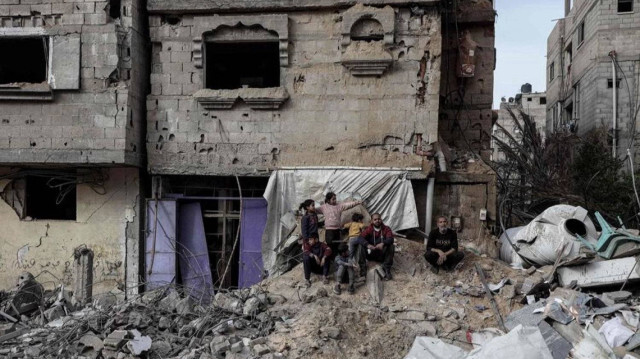
'The destruction, the loss of life, the despair is simply overwhelming,' says UN Population Fund representative to Palestine
The UN Population Fund (UNFPA) representative to Palestine, Nestor Owomuhangi, said Thursday that mounting anger for those in the Gaza Strip is leading "to disorder and looting."
"The destruction, the loss of life, the despair is simply overwhelming," Owomuhangi said at a virtual news conference after an eight-day visit to Gaza.
Saying that UNFPA's "attempts to visit hospitals in northern Gaza were denied by Israeli authorities," he said, 2.1 million Gazans are trapped in a "catastrophe" after a year-long genocide.
With many Gazans forcefully displaced multiple times due to Israel's relentless airstrikes, he said one person he met was displaced 15 times.
"More than 5% of the population in Gaza have either been killed, injured or are missing. Anger affects 96% of Gazans, leading to disorder and looting. Anger mounts against humanitarian workers as conditions worsen," he said, referring to social media posts claiming that the "UN is not doing enough to help Gaza."
Owomuhangi further noted that "there are 49,000 pregnant women currently, and with about 4000 due to give birth soon."
"That's approximately 130 births daily," he said, warning about the increasing risk of miscarriage and childbirth mortality.
With the worsening humanitarian situation, Owomuhangi emphasized that "pregnant women miscarrying or dying during childbirth have now tripled."
He stated that factors such as malnutrition and anxiety hinder breastfeeding, and noted that baby formulas are not affordable for many or "not even available."
"Over 17,000 pregnant women are on the verge of famine while 11,000 pregnant women are already in famine-like conditions," he said.
Highlighting the challenges to delivering aid to people in Gaza, he noted that "logistical challenges are severe."
"In September, 87% of the 588 planned humanitarian movements were blocked or denied by the Israeli authorities," he said, noting that "there is simply a shortage of everything."
Emphasizing the shortage of painkillers to anesthetics to antibiotics, he stated that "the actual problem is getting these items into the facilities where they are meant to be."
"It takes about four or five months to get these items actually in," he said, adding it is not only because of the volume but also due to lack of security for its distribution.

